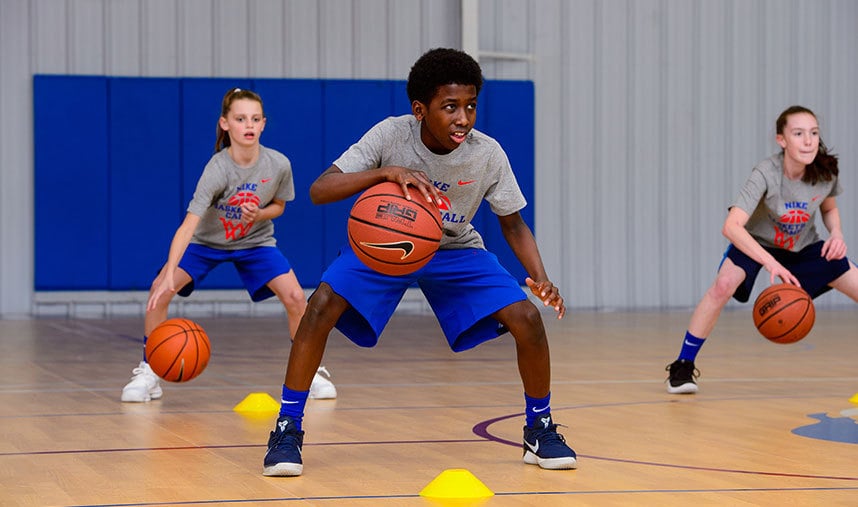
Virtual Sports Camps: Training Excellence Anywhere, Anytime
The landscape of sports training has witnessed a paradigm shift with the advent of virtual sports training camps. In a world where connectivity knows no bounds, athletes now have the opportunity to access high-quality training programs and coaching expertise from the comfort of their homes. Let’s delve into the transformative impact of virtual sports training camps on athletic development and performance.
Breaking Barriers: Accessible Training for All Athletes
One of the key advantages of virtual sports training camps is their ability to break down geographical barriers. Athletes from diverse locations can now participate in elite-level training programs without the need to travel. This accessibility ensures that talent is not confined to specific regions, opening up opportunities for aspiring athletes worldwide to receive top-notch coaching and training.
Personalized Training Plans: Tailored to Individual Needs
Virtual sports training camps prioritize personalized training plans that cater to the unique needs and goals of each athlete. Through online assessments, data analysis, and constant communication, coaches can tailor workout routines, skill drills, and performance assessments to address individual strengths and areas for improvement. This personalized approach enhances the effectiveness of training regimens, fostering optimal athletic development.
Flexibility and Convenience: Training on Your Terms
The virtual nature of these training camps introduces a level of flexibility and convenience previously unseen in traditional sports training. Athletes can follow their customized training schedules at times that suit their individual routines. Whether it’s early morning workouts or late-night skill sessions, the flexibility of virtual training ensures that athletes can optimize their training without compromising other commitments.
Interactive Coaching Sessions: Real-time Guidance and Feedback
Through live video sessions and virtual classrooms, athletes receive real-time guidance and feedback from experienced coaches. These interactive sessions replicate the immersive experience of in-person coaching, allowing athletes to ask questions, seek clarifications, and receive instant feedback on their performance. This dynamic interaction contributes to a sense of mentorship and guidance crucial for athletic growth.
Utilizing Technology for Skill Enhancement: Beyond Physical Conditioning
Virtual sports training camps leverage technology not only for physical conditioning but also for skill enhancement. Interactive simulations, augmented reality (AR), and virtual reality (VR) technologies create realistic training scenarios that simulate game situations. Athletes can refine their decision-making, spatial awareness, and tactical understanding, enhancing their overall performance on the field.
Nutritional Guidance and Mental Conditioning: Holistic Athlete Development
Recognizing the importance of holistic development, virtual sports training camps extend beyond physical training. They incorporate nutritional guidance and mental conditioning programs to ensure athletes are equipped with comprehensive tools for success. Nutritionists provide dietary plans tailored to individual needs, while sports psychologists offer mental strategies to enhance focus, resilience, and overall mental well-being.
Community Building: Connecting Athletes Globally
Virtual sports training camps foster a sense of community among participating athletes. Online forums, group challenges, and collaborative training sessions create a virtual camaraderie that transcends geographical distances. Athletes can share experiences, motivate each other, and build a global network of like-minded individuals, contributing to a supportive and inspiring training environment.
Injury Prevention and Monitoring: Data-Driven Athlete Care
The integration of wearable technology and data analytics in virtual sports training camps enables coaches to monitor athletes’ performance and well-being closely. By tracking metrics such as heart rate, sleep patterns, and workload, coaches can identify signs of fatigue or potential injury risk. This data-driven approach enhances injury prevention strategies and ensures that athletes can maintain peak performance levels safely.
Preparation for Virtual Competitions: Navigating the E-Sports Realm
With the rise of virtual competitions and e-sports, virtual sports training camps prepare athletes for the unique challenges of the digital realm. Training programs include elements specific to e-sports, such as hand-eye coordination drills, reaction time exercises, and strategies for competitive gaming. This forward-thinking approach ensures that athletes are not only physically prepared but also mentally equipped for the evolving landscape of sports.
The Future of Athletic Training: Virtually Limitless Possibilities
In conclusion, virtual sports training camps represent a revolutionary shift in the way athletes approach their training and development. The accessibility, personalization, and technological advancements embedded in these programs signal a promising future for athletic training. To explore more about the transformative impact of virtual sports training camps, visit Virtual sports training camps and embrace the virtually limitless possibilities for athletic excellence.
